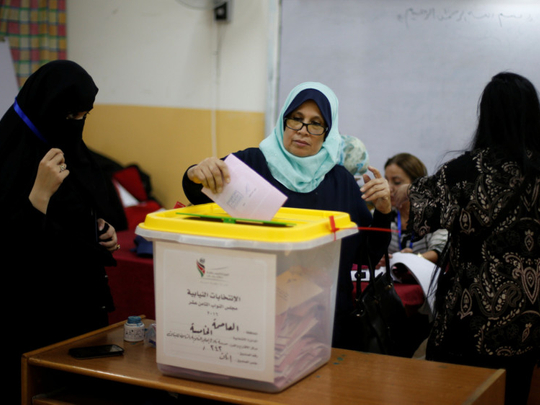
In the aftermath of elections, I have always said to myself: Never cry over spilt milk. I watched polls all over the world — Jordan included. Over the years, I kept saying to myself, the rhapsody was exciting while it lasted — the colour of the campaigns, the political fever on the streets, crowds in tents listening to speeches from the odd candidate on television and on the day of voting. High-pitch adrenalin going into your veins as if vessels are going to explode. Of course, the day after may be disappointing, but that’s life!
Contrary to news reports about the low turnout — under 40 per cent — in the last Jordanian parliamentary elections, dubbed the lowest in the kingdom’s history since the early 1950s when they first started, and consistently so since 1989, I saw these polls with a mixture of elation, trepidation, excitement and somewhat of a challenge to the coming 18th Lower House chamber in the kingdom’s bicameral parliament.
Despite all odds, the beckoning regional turbulence, the instabilities in Jordan’s very backyard, these are the second parliamentary elections to take place — the first having taken place in 2013 in the midst of a boiling Arab Spring.
Despite the low averages, a facile 23 per cent in Amman, and 25 per cent in Zarqa, with the rest of the figures hovering between the 40s and the 60s, the long-term trends, I dare say, may be somewhat positive in a nation that has borne the wear and tear of parliamentary politics yet still lived to tell the tale.
In between these two elections, around 300,000 more voters hit ballot boxes through out the country. This time slightly less than 1.5 million voters ticked their ballot slips.
OK, so it was much less than the 4.1 million who had the right to caste their votes but this is what democratic machinations are all about.
Emergence of new political culture
No matter how hard it was cajoling the electorate into voting booths, these polls suggested a distinct political culture was emerging — helped by different factors at play which may have been due to the scraping of the old electoral system, the one man, one vote of 1993.
In its place was installed a fairer proportional representation law based on electoral lists. It was designed to cut through the social fabric and throw out allegiances based on the tribe, family and kinship.
In all honesty however, you need more time to see the objective functions of the new system — since it was introduced just last summer, it needs more time to enter into the social bones of the electorates.
This is the first time in nearly 10 years the Islamists, under the Islamic Action Front, have taken part in the elections. Despite their internal splits and previous breakaways, they remain unbowed and have put up candidates on 20 electoral lists around the country and have won 15 seats.
In addition, the shrinking of the House to 130 seats from 150 as dictated by the new law, the 15-person women’s quota, plus the five who got in competitively and the fact there is now a motley collection of Christian, Circassian and Chechen seats is likely to add a different substance and seriousness to the new political house.
It’s to be remembered that the last 17th Lower House of Parliament was beset by frequent bouts of rancour between the deputies, with one even reverting to take out a gun on his colleague. Maybe this time around it will be all quiet on the western front, to use a hackneyed phrase.
These new elections have carried a certain quality of professionalism. They were conducted under a new Jordanian Independent Electoral Commission (IEC). There were full international observers led by a European Union monitoring team as well as others and plenty of local, regional and international journalists, numbering around 1,700.
The irregularities have been much lower than before and there has been a greater crackdown on vote-tampering. The IEC has been strident in prosecuting anyone indulging in such practices. It removed some heads of electoral committees and impounded 10 ballot boxes in one of the 23 electoral districts of the kingdom where it is calling for a re-vote — a first in Jordan’s political history and something that was unthinkable just few years ago.
All that means greater transparency and more credibility.
Marwan Asmar is a commentator based in Amman.









